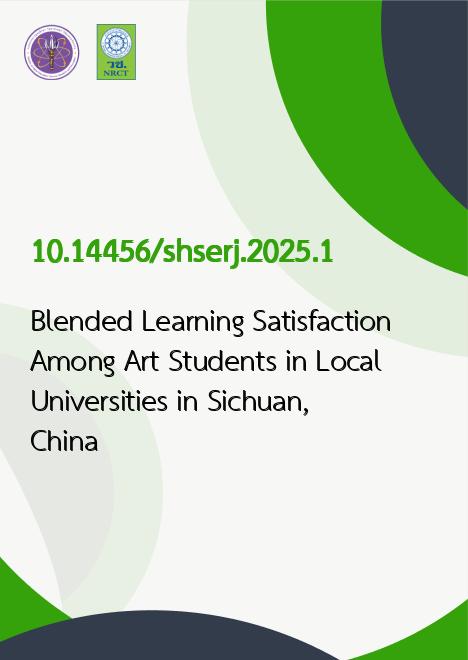
|
Blended Learning Satisfaction Among Art Students in Local Universities in Sichuan, China |
|---|---|
| รหัสดีโอไอ | |
| Creator | Tongcheng Liu |
| Title | Blended Learning Satisfaction Among Art Students in Local Universities in Sichuan, China |
| Publisher | Assumption University Press |
| Publication Year | 2568 |
| Journal Title | The Scholar: Human Sciences |
| Journal Vol. | 17 |
| Journal No. | 1 |
| Page no. | o1-09 |
| Keyword | Art Students, Blended Learning, Student Satisfaction, Higher Education, Ethnic Universities |
| URL Website | http://www.assumptionjournal.au.edu/index.php/Scholar/article/view/7697 |
| Website title | The Scholar: Human Sciences |
| ISSN | 2586-9388 |
| Abstract | Purpose: This study explored the influencing factors of art students' satisfaction with blended learning in local colleges in Sichuan. The conceptual framework proposes a causal relationship between faculty services, academic aspects, reputation, heritage, trust, service quality, and students satisfaction. Research design, data, and methodology: The researcher used quantitative methods (n=500) to survey undergraduate art students in local ethnic colleges and universities in Sichuan. Three target universities were selected. The sampling techniques are judgmental, stratified random and convenience sampling. The index of item-objective congruence (IOC) and Cronbach s alpha reliability were used before the data collection. This study used structural equation modeling (SEM) and confirmatory factor analysis (CFA) for data analysis, including model fit, reliability, and validity. Results: Faculty services, academic aspects, reputation, heritage, trust, and service quality have a significant impact on students satisfaction. In addition, trust has a significant impact on reputation. However, service quality has no significant impact on reputation. Conclusions: Therefore, it is recommended that institutions of higher learning and administrators should pay attention to faculty services and trust to improve student satisfaction and increase the competitiveness of schools. The results imply that universities should prioritize enhancing faculty service as a fundamental element of their strategy to boost student satisfaction. |
